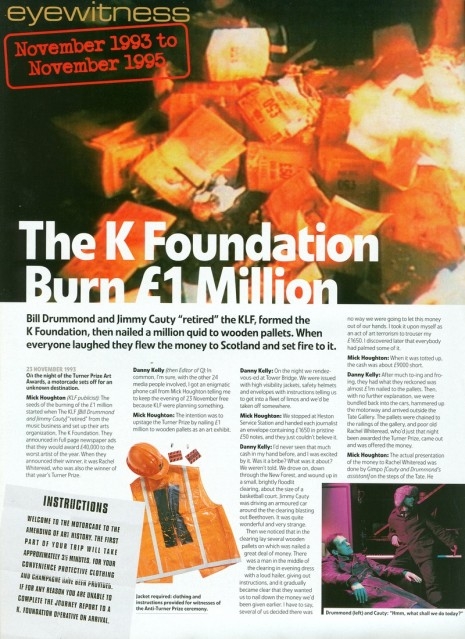
Music impresario Alan McGee has relaunched his Creation Management company with the signing of his first clients The Jesus & Mary Chain. McGee previously managed The Jesus & Mary Chain 30 years ago, and their signing coincides with the band’s plans to celebrate the impending 30th anniversary of their debut album, 1985’s Psychocandy, with three gigs in the UK in November of this year and further shows in 2015.
The Jesus & Mary Chain first formed in East Kilbride, Scotland in 1983. The band centers around the writing and performing partnership of brothers Jim and William Reid. Over three decades the band released a series of highly influential albums and singles. The band split-up in 1999, and reformed in 2007.
In an interview with Music Week Alan McGee said:
“The Mary Chain were the first band I ever managed when I was 23,” McGee told Music Week today. “That was 30 years ago and they exploded really fast. By the time I was 24, they were No.1 in Germany and other places. Jim [Reid] was 22, I was 24 and Douglas [Hart] was 17. It was fucking nuts, if you think about it. We were kids! Now, I’m 53 - I suppose that’s kind of the normal age of a manager in a lot of ways.”
The gigs in November will be the first time The Jesus & Mary Chain have played live in the UK since 2008 (or 2012 in the US). Discussing the forthcoming anniversary in NME, lead singer Jim Reid said:
“Psychocandy was meant to be a kick in the teeth to all of those who stood in our way at the time, which was practically the whole music industry. In 1985 there were a great many people who predicted no more than a six-month life span for The Mary Chain. To celebrate the approaching 30th anniversary of the album, we would like to perform it in its entirety. We will also perform key songs from that period that did not feature on the album.”
Tickets for the trio of UK gigs go on sale 9am Friday 16th May.
McGee will continue to oversee his other record label 359 Music, which is run in conjunction with Cherry Red, while revitalizing Creation Management.
“Creation Management are going to sign a couple of baby bands, but the main thing for us is to do the Mary Chain right. We’re going to South America on Monday, then we’ll do some more American stuff, then there’s three British dates. Then really we’re [planning events for] the whole of next year - the festivals [in 2015] are going to be all about Psychocandy. And at the end of that, everyone will probably look at each other and go: ‘I want a year off!’”
Though Sony Music own Creation Records, McGee has full rights to Creation Management and publishing company Creation Songs. For the new Creation Management, McGee has teamed-up with businessman Simon Fletcher, dubbed “The King of Timber” having made millions in the wood trade.
Since leaving the music business in 2008, McGee has kept a low profile in Wales making money out of property. But there was only so long the talented maverick could spend “navigating his navel and watching everything weird and wonderful on the internet.” Over the past two years McGee has produced the movie Kubricks, appeared in the film Svengali, launched the new talent label 359 Music, and wrritten his bestselling autobiography Creation Stories.
“I’m only 53, I’m not that boring. Let’s go have some fucking fun. And who better to have fun with than Jim and William [Reid] - because they’re both fucking nuts, and I love it. William’s a genius, Jim’s a rock’n’roll star and I’m a fucking headcase. I mean, what could possibly go wrong?”
What indeed?
Here’s The Jesus & Mary Chain’s debut on UK television way back when.
Via Music Week
Bonus Mary Chain tracks, after the jump…






